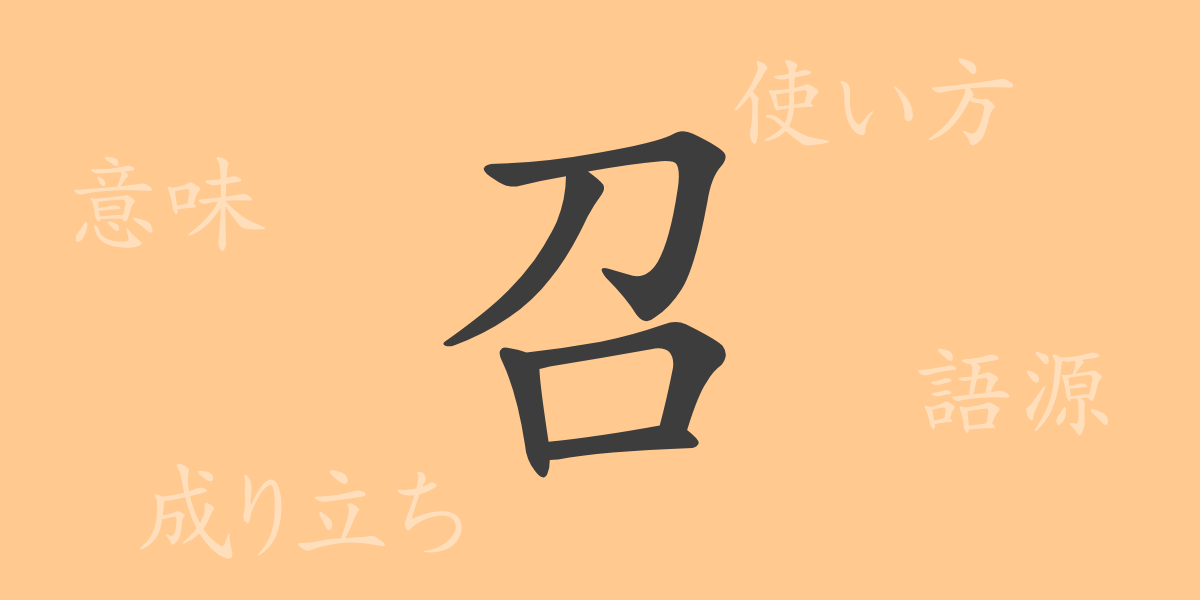The Japanese language features thousands of kanji, each with its own unique history and meaning. One such common kanji is ‘召’ (めす, しょう), which is indispensable in daily life. This article delves into the kanji ‘召’, exploring its origins, meaning, usage, and commonly associated phrases and idioms. Join us on a journey through the rich world embodied by each kanji.
Origins of 召 (めす, しょう)
The kanji ‘召’ originated in ancient China, initially symbolizing a person with their mouth wide open. From this image, the meanings ‘to call out’ and ‘to summon or order’ evolved. Over time, the character evolved into its current form ‘召’, which continues to convey the idea of summoning or commanding.
Meaning and Usage of 召 (めす, しょう)
The kanji ‘召’ primarily means ‘to summon’ or ‘to order.’ It has also come to include meanings such as ‘to invite’ or ‘to recruit.’ This kanji is used in various contexts, from calling a person to summoning deities in rituals.
Readings, Stroke Count, and Radical of 召 (めす, しょう)
The kanji ‘召’ holds interesting features in terms of its pronunciation and structure.
- Reading: The On’yomi (Sino-Japanese reading) is ‘しょう’, and the Kun’yomi (native Japanese reading) is ‘めす’.
- Stroke Count: ‘召’ is composed of 5 strokes.
- Radical: The radical for ‘召’ is ‘口部’ (こうぶ), which means ‘mouth’.
Phrases, Idioms, and Proverbs Using 召 (めす, しょう) and Their Meanings
There are numerous idioms and proverbs that include the kanji ‘召’, reflecting its rich usage in the Japanese language. Some examples include:
- 召集 (しょうしゅう): To gather specific people at a specific place.
- 召喚 (しょうかん): To summon a person or deity.
- 召し上がる (めしあがる): A polite expression for ‘to eat’ or ‘to drink’.
- 天に召される (てんにめされる): A euphemistic expression for death.
- 召し捕らえる (めしつかまえる): To capture or arrest.
Conclusion on 召 (めす, しょう)
The kanji ‘召’, with its simple appearance, possesses a variety of meanings and is widely used in the Japanese language. Originating from ancient China and evolving alongside Japanese culture, this kanji plays a crucial role in connecting people through language. Through the idioms and phrases introduced here, we hope you have gained a deeper appreciation of the depth ‘召’ brings to the Japanese language.

























